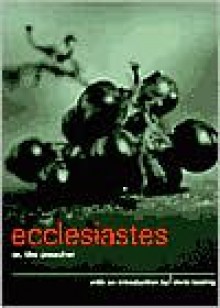
A Time To... by Ronald Louis Peterson gives new meaning and perspective on how our reactions to unexpected and uncontrollable circumstances help build our character.
On September 11, 2001 the world witnessed with horror the terrorist attack on the U.S.A. For New Yorkers like fifty-year-old risk manager, Al Masterson, the explosion of the World Trade Center Twin Towers was to be an unforgettable event.
On that tragic morning Al went to work, as usual, at Tower One. Later on, he and others were running for their lives, trying to escape before the inevitable happened-- the creation of a collective grave as the tower collapsed upon them. Al ends up trapped with two others on a staircase. As the building crashes down on him, an amazing thing happens to him: scenes of important events from Al's past start to replay in front of his eyes, as if he were at a theater. Through this experience, Al relives his childhood’s growing pains and feels remorse for the tragic death of one friend and the incarceration of his dear friend, Tommy. He also vividly recalls his years with the Peace Corps in Ethiopia during the reign and collapse of Haile Selassie.
Once the images stopped appearing --as if it was the end of a movie, Al realized that success throughout his life had a steep price: tragedy, envy, disappointments, and betrayal. He is outraged at the outcome from some of the events shown in his visions.
He feels helpless and in despair since there is no guarantee he will make it alive from Tower One.
The author's attention to detail in describing scenery and engaging situations will have the reader join with Al as he wonders what is happening: Is he dreaming? Is he having an out-of-body experience? Is he already dead? What is the purpose of someone showing all these events to him? Will he and the others make it out of Tower One alive? The answer to all these questions will unfold, but with many twists and turns along the way, and a surprising end.
A Time To... is not a book merely to entertain. More importantly, it honors those who risked their lives trying to save others during the rescue attempts after the airplanes crashed into the Twin Towers. It is a book that could provide a healing venue for those who lost loved ones on September 11 and the days afterward.
Al Masterson represents all the victims of this tragedy—those who survived and those who, as in one of his visions, were covered in ashes and waiting for their next "train stop" in the afterlife while listening to the New York Philharmonic playing Gustav Mahler's “Resurrection Symphony.
I highly recommend this book to readers who enjoy a well written novel intertwined with historical facts.
Ecclesiastes 1: “There is a time for everything,
and a season for every activity under the heavens...”
 This one book of the bible proves that the bible is not full of junk only. This book is good philosophy. I suspect that the last chapter of it was an add on over time because it doesn't flow with the rest of the book. I listened to this book from my "Word of Promise Complete Audio Bible" available from Audible for one credit well worth the price.
This one book of the bible proves that the bible is not full of junk only. This book is good philosophy. I suspect that the last chapter of it was an add on over time because it doesn't flow with the rest of the book. I listened to this book from my "Word of Promise Complete Audio Bible" available from Audible for one credit well worth the price.
 Log in with Facebook
Log in with Facebook 






